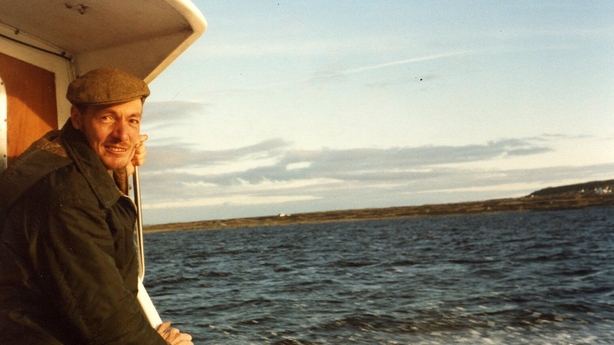This summer has seen a unique distortion of order as we know it, with the boundaries in the sphere of day to day life blurred. A trip to the supermarket felt like a heroic quest. The private haven of our bedrooms became a place for zoom calls with our employers. The nine to five work day became ambiguous. Our breaks were punctuated by baking banana bread and the outside crept inside as we planted seeds in small pots by the kitchen sink which sprouted into shoots under the sun from the window.
Earlier this month, Tim Robinson: Connemara aired on TG4. Robinson, born in England, moved to Ireland in 1972 and is most well-known for his cartography and writings on the Aran Islands. The film is a depiction of Robinson’s trilogy on Connemara which includes Listening to the Wind, The Last Pool of Darkness and A Little Gaelic Kingdom. In early April of this year, Robinson died of Covid-19 aged 85, two weeks after the death of his partner and collaborator, Mairead.
‘‘Just as Robinson’s work explores the intersection of geographical, cultural and linguistic forms, his death came at a time of unprecedented convergence and conflict between humans and nature, time and space, and public and private spheres.’’
While the TG4 film is a visual representation of this particular trilogy, it was during lockdown that I picked up Robinson’s latest book, Experiments on Reality, which, true to its name, toys with the boundaries of essay form, scientific enquiry and storytelling. The scope is also somewhat more geographically ambitious than the Connemara trilogy, spanning from Yorkshire to Robinson’s national service in Malaya as well as Istanbul.
“We may, for the first time, notice how attached we had become to a particular park bench, bus stop, or library seat. Or, we might find ourselves with a nostalgic longing for the tyranny of arts block seagulls.”
Just as Robinson’s work explores the intersection of geographical, cultural and linguistic forms, his death came at a time of unprecedented convergence and conflict between humans and nature, time and space, and the public and private spheres. Irish philosopher John Moriarty, a contemporary of Robinson’s, famously stated: “If the wildness inside you dies, I think you’re finished. Unless there’s wildness around you, something terrible happens to the wideness inside of you.’’ This is a compelling point, given we are living through a time in which our connections to the places we once frequented but can no longer visit have been brought to the forefront. Robinson begins the preface of Experiments on Reality with the assertion that he wishes to explore how our physical bodies relate to the physical universe. We may, for the first time, notice how attached we had become to a particular park bench, bus stop, or library seat. We may have replaced habitual trips to the pub with walks in the forest, or by the beach. We might find ourselves with a nostalgic longing for the tyranny of Arts Building seagulls, or a curiosity about the bats that have taken up residence in the Pavilion bar during our absence. Furthermore, Trinity’s plans to plant a wildflower meadow on college green as part of a biodiversity campaign is a welcome addition of micro-wildness to the macro of metropolitan university life.
‘‘Robinson described his beloved Aran Islands as a unique place, where humanity and nature working with each other have ‘‘brought forth a landscape which is not paralleled anywhere else in the world.’’’
The past few months also saw the death of another giant of the Irish literary world, Eavan Boland. Many readers may remember studying her poem, This Moment, for the Leaving Cert. Just as Robinson tapped into rural Ireland as a place of inspiration, Boland famously depicted the suburbs as a place of artistic gravity in contrast to the cosmopolitan Dublin arts scene at the time. Like Robinson, Boland reminds us of the beauty in things that occupy unchartered territory; the things that are “getting ready/to happen out of sight,”; the apples that ripen and the stars that emerge when the human world is confined to the indoors. Robinson described his beloved Aran Islands as a unique place where humanity and nature, working with each other, have ‘‘brought forth a landscape which is not paralleled anywhere else in the world”.
President Michael D. Higgins described Tim Robinson as ‘‘a scholar who shared his profound understandings of his surroundings, and sought to draw attention to the incalculable value of the natural world and the threats that exist to our linguistic, cultural and physical heritage.’’ Robinson possessed not only a unique set of interdisciplinary talents, but ‘‘an incomparable sense of wonder”. As his many followers and admirers in the artistic world and beyond mourn his death, a quote from the beginning of the aforementioned documentary springs to mind: “the death rattle is nothing compared to the silencing of life, or the silencing of a language”.
Tim Robinson: Connemara is available on TG4 player






